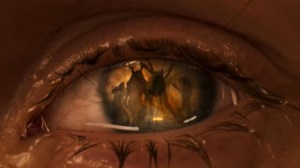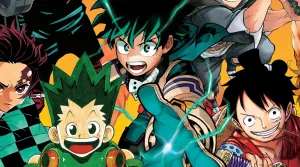
Shang-Chi has been wrestling with the responsibility of living in two worlds, one he wanted to fully embrace and another he hoped to leave behind. Even though the clash and outcomes between these two seemed inevitable, the series’ conclusion stops short of making it seem “predictable,” at least in a negative sense. Shang-Chi #5 may not be the series’ most visually impressive chapter or its best paced, but it is a fitting end to an even better series.
Videos by ComicBook.com
In an opening that’s about as dramatic as they come, readers see a superhero squad who have mastered their disciplines descending on a city besieged by “ancient Chinese vampires” as an agent aptly puts it. While the ferocity of the Jiangshi and Sister Hammer have been established before, these opening moments reminds readers of that quality in case they held any lingering doubts. A show of agents and civilians being converted into the Jiangshi subtly raises the threat level by presenting not just an attack, but an outbreak.
Though the bond between Shang-Chi, Sister Dagger, and Brother Sabre is stronger than ever before in Shang-Chi #5, their reforged reliance upon one another is weighed down by some unaddressed reservations from Shang-Chi #4. Through visions of what may come inflicted on his mind by an enemy, Brother Sabre saw visions of Shang-Chi taking the position of Commander and bringing the Earth to ruin.
At the time it foreshadowed that Brother Sabre may later intervene to save Shang-Chi, perhaps from the Jiangshi wound inflicted on him by Sister Hammer’s forces. Or perhaps Shang-Chi would personally save Brother Sabre somehow to unknowingly reassure his brother of his pure nature. Neither route, nor any route, was taken, however, even when there was a perfect opportunity presented by Shang-Chi unwillingly having to strike out at his siblings. It’s an omission with no apparent reason behind it which stands out even more considering how cohesive the rest of these chapters have been.
As far as Shang-Chi’s dealings with his conflicting worlds go, the final issue handled the matter with poise. A mind-influencing microchip was a bit on-the-nose as far as personifications of the modern influence on old ways go, but the living metaphor for the Jiangshi demons being manifestations of inner demons forged from trauma was a creative solution and explanation for their existence. Shang-Chi’s trip through Sister Hammer’s memories feels like it would’ve been better suited for perhaps the fourth issue while leaving the conclusion more grounded in reality, but this peek into her mind is a visual treat regardless. Some of Shang-Chi‘s best moments came from the skilled warrior being transported to the worlds he was least familiar with, and the same is true when reliving Sister Hammer’s past.
Coming to terms with Zheng Zu’s lasting influence is an outcome expected since the venomous relationship was established long enough ago that one could’ve predicted likely outcomes of the series, but the finale still manages to surprise while staying true to its characters. It also smartly leaves the door open for more Shang-Chi adventures to come with a renewed since of camaraderie imbued in the Five Weapons Society as it enters a new era.
Published by Marvel Comics
On January 27, 2021
Written by Gene Luen Yang
Art by Dike Ruan and Philip Tan
Colors by Sebastian Cheng
Letters by Travis Lanham
Cover by Marcus To and Sebastian Cheng








